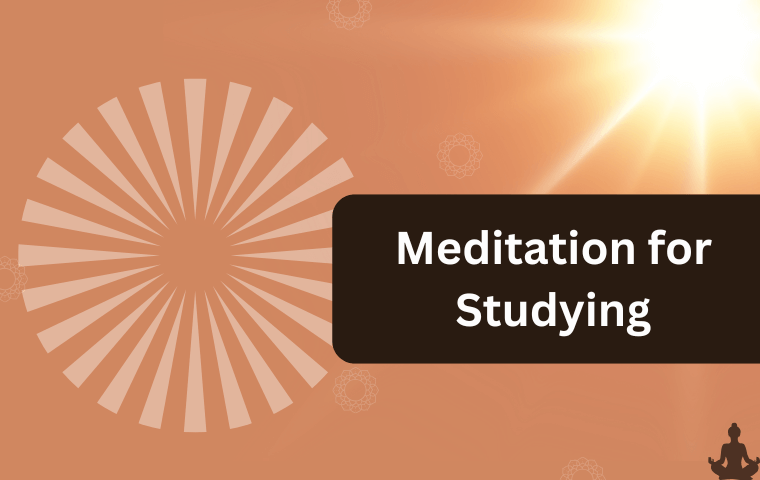Studying can be tough, especially when stress and distractions take over. But what if there was a simple way to calm your mind, focus better, and even enjoy the process? That’s where meditation comes in. Meditation for studying helps you manage stress, improve memory, and stay present while learning. Let’s dive into how it works and how you can start.
Why Meditation Helps with Studying
When studying, your brain works best when it’s calm and focused. Stress, anxiety, or negative thoughts like “I can’t do this” often block your ability to absorb and remember information. Meditation helps by:

- Reducing stress: It calms your mind, lowering anxiety and creating a peaceful state.
- Improving memory: Meditation increases blood flow to the brain, which enhances memory retention.
- Sharpening focus: It trains your mind to stay present, helping you concentrate for longer periods.
Think of meditation as a mental reset that prepares your brain for effective learning.
How to Meditate for Studying
Meditating before or during study breaks can make a big difference. Here’s a step-by-step guide:
Step 1: Find a Quiet Spot

Choose a place where you won’t be interrupted. It could be your room, a park, or a library corner.
Step 2: Get Comfortable
Sit upright with your legs crossed or on a chair with your feet flat on the ground. Keep your back straight and rest your hands on your knees or lap. If needed, use a cushion for support.
Step 3: Focus on Your Breathing
Close your eyes and take slow, deep breaths. Focus on the sensation of air moving in and out of your nose. If your mind starts to drift, kindly bring your focus back to your breath. Should your mind start to wander, softly guide your focus back to your breath.
Step 4: Finish Slowly
When your session is done, open your eyes slowly and stretch a little. Take a moment to feel refreshed before diving back into your studies.
Start with just 5 minutes a day, and as you get used to it, extend your sessions to 10 or 20 minutes.
Benefits of Meditation While Studying
Here’s how meditation can transform your study routine:
- Boosts Focus: It trains your mind to stay on one task, reducing distractions.
- Improves Retention: Meditation helps you absorb and remember information better.
- Relieves Stress: It clears your mind, so you don’t feel overwhelmed by exams or deadlines.
- Increases Creativity: By calming the left side of your brain (responsible for logic and chatter), meditation activates the right side, which is tied to creativity and problem-solving.
Tips for Beginners
- Start Small: Begin with 2-5 minutes a day and gradually increase the time as you feel more comfortable.
- Use Guided Meditations: Apps like Insight Timer or Declutter the Mind offer guided sessions tailored for focus and relaxation.
- Practice Regularly: Meditation works best when done consistently, even when you’re not preparing for exams.
- Take Study Breaks: A quick 5-minute meditation during study breaks can recharge your brain and keep you motivated.
Final Thoughts
Meditation isn’t just a tool for relaxation; it’s a way to supercharge your brain for better learning. With regular practice, you’ll find it easier to focus, remember key concepts, and stay calm even during stressful exams. Give it a try, and turn studying into a more enjoyable, productive experience.

